Andrei Kostriukov’s paper on the relationship between the Serbian Orthodox Church and the Russian Church Abroad from 1920 and until World War II presented at the patronal feast of Holy Trinity Seminary on February 12, 2008. This an off-print from Pravoslavnaia Zhizn‘ 2, 2009. A.Kostriukov is also the author of the first monograph on the early period of the ROCOR (1920-1925):Русская Зарубежная Церковь в первой половине 1920-х годов (The Russian Church Abroad in the First Half of the 1920s).
Read here an interview with A.Kostriukov.
I have posted on this site the following A.Kostriukov’s articles:
On the relationship between the Serbian Orthodox Church and the Russian Church Abroad from 1920 and until World War II; on the assessment by the Serbian Church of the ROCOR’s canonical status toward the end of WWII.
and
on the Stavropol Council that took place on territories controlled by white army in 1919.
Доклад посвящен малоизвестным фактам из истории взаимоотношений между Сербской Патриархией и Архиерейским Синодом Русской Зарубежной Церкви в Югославии в довоенный период, прочитанный на празднике Свято-Троицкой Семинарии в Джорданвилле, 12-го фев. 2008 г. Оттиск из ном. 2 Православной Жизни за 2009 год.
Предоставив приют и оказав большую помощь русским эмигрантам и Архиерейскому Синоду, Правительство Югославии и Сербская Православная Церковь поставили Русскую Зарубежную Церковь в достаточно трудные условия. Закономерным результатом стало то, что еще до начала Второй мировой войны Архиерейский Синод РПЦЗ начал готовиться к переезду из Югославии.



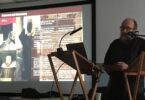
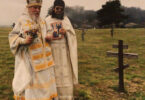
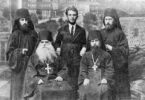
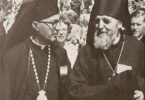


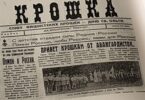
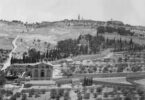
This was interesting, and extremely ‘different,’ as I have never read anything at all about church finances concerning the Church Abroad.
The author speaks of the refusal of the government of Yugoslavia to hand out money to the Church Abroad, while it did so to the different religious bodies of Yugoslav citizens-this seems only normal, that a country would take care of its own citizens before it took care of refugees-Orthodox or not. Also, it must be considered that during the 1930’s the entire world was going through a depression the likes of which had never been seen before; Yugoslavia was probably not in a position to pass out much money.
I sincerely doubt that ANY Orthodox Church today would be ‘happy’ to be in a position to even think it may have to absorb some 20 or 30 hierarchs from another jurisdiction, even disregarding the fact that the ‘parent jurisdiction’ of the bishops to be absorbed would be extremely hostile to that act-consider the consequences of all that!
Also, the fact that the German government ‘helped’ the Church Abroad appears yet again without the entire story being told-YES, the German Government, the National Socialist German Government, the NAZI German Government, with Der Fuehrer, Adolf Hitler at the helm, did indeed ‘help’ the Church Abroad with Church buildings-whether donations of money, builsdings, constuction work. BUT it was German law that required the German Government to do so with ALL RELIGIOUS BODIES LEGALLY RECOGNIZED IN GERMANY. It was not, as it certainly sounds every time it is mentioned (and it sure has been mentioned a lot!), that the Church Abroad was somehow singled out as a group that the German Government thought was really swell, and decided to just throw tons of money at!
But, all in all, an interesting article that does touch upon issues that have rarely-if ever-been addressed before!
This article making it look as if the SOC was forbidding ROCA to function or develop. This was in no way the case. The SOC is and at that time was a canonical Autocephalous Patriarchate. It would be uncanonical for another church to exist within its canonical territory. Canon 39 of Trullo, which was the main defense of M. Antonii (Khrapovitskii) and ROCA for existing within the boudaries of the SOC, cannot be misinterpreted by contemporary historians as having given the right for ROCA to function as an autocephalous church within the canonical territory of the SOC, but rather we must understand the emphasis of the first part of this canon, which speaks about the Archbishop John of the Cyprians who departed to the Hellespont because of barbaric attack. Since he was the archbishop of an autocephalous church, he was given the full control over the diocese of the Hellespont, which was the canonical territory of the EP. (Obviously, the point of the canon isn`t in the first part of this, but rather in the second section, which gives the hierarch of higher rank control over the territory. – The meaning was church order, not two jurisdictions on one territory.)
In any case, the SOC allowed ROCA to operate itself within the boundaries of the SOC, but to mainly have jurisdiction over the territory outside the canonical territory of the SOC. Only those Russians in Yugoslavia who were in the military service were allowed to remain as a part of the Russian Church and ROCA, otherwise they were accepted into the SOC, including the clergy. They took parishes and were second, third, or fourth priests of parishes throughout Yugoslavia.
Also, the author claims that P. Varnava was very cold at M. Antonii`s 70th birthday in 1933. There is an entire set of correspondence that went on between P.A. and Metropolitan Sergius in defense of M.A. and ROCA. There are just a lot of facts missing in this little propaganda-filled article. Honestly, this seems like an indirect shot at ROCA by someone in the MP, making it look like the Serbs were cold to ROCA because it upheld the MP`s rights.
There are many more impressions I have from this article. My BTh thesis discusses this topic at length.